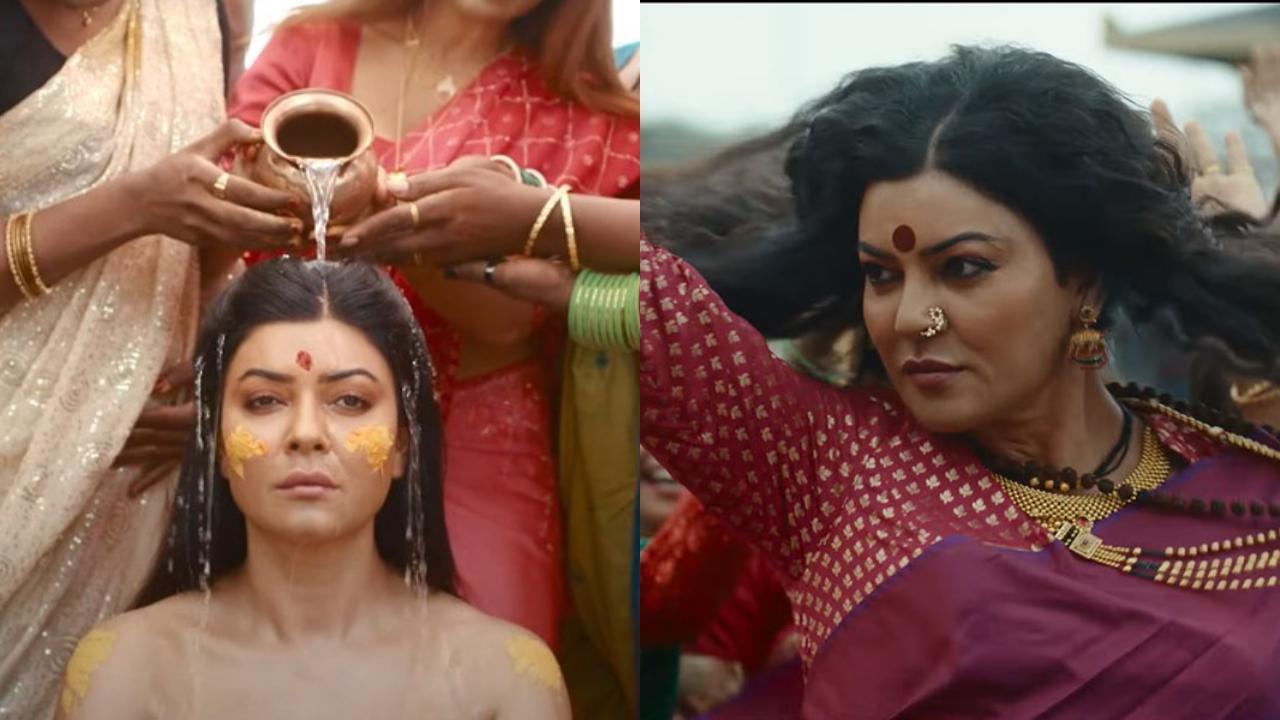Home / Entertainment / Web Series / Article /
Taali: Sushmita's portrayal of Shreegauri Sawant champions a powerful story
Updated On: 23 August, 2023 06:55 PM IST | Mumbai | Harshita Kale
Shreegauri Sawant's mobilization for the recognition of trans rights was compellingly portrayed by Sushmita Sen in 'Taali.' But how well has the show represented not just a brave story but millions of Indian queer realities?

Sushmita Sen as Shreegauri Sawant in `Taali`
‘Taali’ is an episodic biographical series based on the life of iconic transgender activist Shreegauri Sawant who helmed the 2014 landmark petition that recognized trans people in India under the umbrella of ‘third gender.’ Starring Sushmita Sen in the lead role, it attempts to shine a spotlight on the resilient and obstacle-ridden journey of Sawant as she struggled for the social upliftment of her community, and her mobilization for state recognition of trans people and their rights.
Shreegauri Sawant has been a cultural icon for the Indian trans and queer community. Her fronting the 2014 petition where the Supreme Court eventually granted a legal status to transgender people and accorded them a series of civil safeguards was widely publicized at the time. It was also a precursor to the eventual striking down of Section 377 in 2018, which decriminalized homosexuality.



